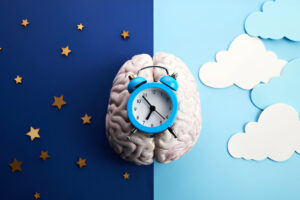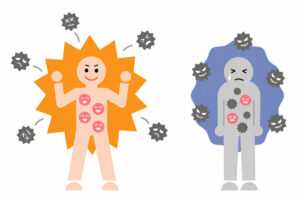Ever feel like your body just knows when it’s time to sleep, eat, or even hit that afternoon slump like clockwork? No, you’re not psychic or weirdly tuned into the universe (although, that’d be cool). What you’re feelin’ is your circadian rhythm doing its thing. Yep, your biological clock is real—and it’s wild how much it controls.
Let’s dig into what this whole circadian thing really is, how it works, what happens when it goes totally off the rails, and how you can keep your inner clock tickin’ just right. You’re gonna wanna know this stuff—especially if you like sleeping, eating, feeling good, or being alive in general.
What Even Is a Circadian Rhythm?
Alright, so circadian rhythms are basically your body’s internal 24-hour cycles. They tell you when to wake up, when to feel sleepy, when to digest food, and even when your brain should be on its A-game. The word circadian literally means “about a day” (‘circa’ = about, ‘diem’ = day).

In simpler terms: it’s your body’s schedule, and it runs without needing a planner app or reminders.
Here’s What It Controls (More Than You Think):
-
Sleep-wake cycles
-
Hormone release (like melatonin and cortisol)
-
Body temperature
-
Digestion and metabolism
-
Mood and energy levels
So yeah… it’s kinda a big deal.
How Does This Rhythm Even Work?
The whole thing starts in your brain, in a place called the suprachiasmatic nucleus (SCN), which lives in the hypothalamus. (Say that five times fast.) This little area gets info from your eyes about light and darkness and tells the rest of your body what time it is.
Once the SCN has the time down, it syncs the rest of your body like a conductor leading a symphony. Light goes in, your circadian cycle adjusts, and boom—your body knows what to do.
Quick Table: Light vs. Your Circadian Cycle
| Time of Day | Light Exposure | Body Response |
|---|---|---|
| Early Morning | Natural sunlight | Wake up. Cortisol spikes. You feel alert. |
| Midday | Bright daylight | Peak energy. Mental sharpness. |
| Evening | Sunset/lower light | Melatonin starts rising. You slow down. |
| Night (darkness) | No light | Time to sleep. Body starts recovering. |
Define Circadian Rhythm (But Like, Casually)
Okay, so if someone stops you and goes “Hey, could you define circadian rhythm for me real quick?” you can hit ’em with this:
“Sure! It’s your body’s natural 24-hour clock that controls sleep, energy, digestion, and all the stuff your body does automatically based on light and darkness.”
Boom. Nailed it.
What Happens If Your Circadian Rhythm Gets Messed Up?
Oof. This is where things get dicey. When your circadian rhythm is disrupted—and trust me, it happens more than you’d think—it can mess up your whole life vibe.
We’re talkin’:
-
Insomnia or poor sleep
-
Mood swings
-
Low energy
-
Weight gain
-
Weird hunger signals
-
Depression or anxiety symptoms
-
Weakened immune system

This is what scientists call circadian rhythm disorder, and it ain’t fun.
Causes of Circadian Disruption:
-
Staying up crazy late and sleeping till noon (we’ve all done it)
-
Night shifts or irregular work schedules
-
Jet lag (traveling across time zones messes with you big time)
-
Too much screen time before bed (your phone is lying to your brain!)
-
Not getting enough natural sunlight
Types of Circadian Rhythm Disorders
Yeah, there’s more than one. Here’s a peek:
| Disorder Name | What It Does |
|---|---|
| Delayed Sleep Phase Disorder | You fall asleep and wake up waaaay later than most people. |
| Advanced Sleep Phase Disorder | You get tired super early and wake up at the crack of dawn. |
| Shift Work Disorder | You work nights or rotating shifts, and your body has no clue what’s going on. |
| Jet Lag Disorder | Traveling across time zones messes with your sleep. |
| Irregular Sleep-Wake Rhythm | Your sleep is all over the place—no clear pattern. |
Your Biological Clock Is Real. Respect It.
So, let’s just get this straight: your biological clock is not some made-up wellness trend. It’s in your DNA. Literally. Your body’s cells have clocks. Your brain’s got a master clock. It’s all synced to the circadian rhythm.
And when it’s working right? Magic.
When it’s off? Chaos.
How to Keep Your Circadian Rhythm Healthy
Wanna stay in sync? Here’s what you gotta do:
-
Get sunlight early in the day. Go outside when you wake up. Even for a few mins.
-
Avoid bright screens at night. Blue light messes with melatonin production.
-
Keep a regular sleep schedule. Yes, even on weekends (sorry).
-
Avoid caffeine too late. That late-night latte? Not helping.
-
Stay active. Daily movement keeps your rhythm groovin’.

Wait, Can You Reset Your Circadian Rhythm?
Absolutely. It’s not set in stone. If your circadian cycle is all over the place, you can reset it.
Try this:
-
Go to bed and wake up at the same time every day
-
Get light in the morning and dim things down in the evening
-
Eat meals at regular times
-
Limit naps to 30 mins max
-
Use melatonin supplements carefully (talk to a doc first)
Real Talk: Circadian Sleep and Your Health
We can’t stress this enough: your circadian sleep pattern impacts pretty much every part of your health. Heart, brain, digestion, mood—it all ties back.
People who ignore their rhythms tend to:
-
Sleep worse
-
Have higher risk of heart disease
-
Struggle with mental focus
-
Experience metabolic issues
So yeah, it ain’t just about beauty sleep anymore.
FAQs About Circadian Rhythm
“What is circadian rhythm in simple terms?”
It’s your body’s natural daily clock that tells you when to sleep, wake, and eat.
“Can you fix a broken circadian rhythm?”
Yep! With consistent sleep, light exposure, and healthy habits, you can reset it.
“Is circadian rhythm the same for everyone?”
Not really. Some folks are night owls, others are early birds. Genetics plays a part.
“Does aging affect circadian rhythms?”
Totally. Older adults tend to wake up earlier and may sleep less deeply.
“Can food affect your circadian rhythm?”
Yes. Eating at odd hours (like late-night snacks) can throw your rhythm off.
Final Thoughts: Your Rhythm, Your Power
So now that you know the deal with circadian rhythms, it’s time to tune in and listen to your body’s beats. You don’t need fancy gadgets or apps—just awareness and a lil discipline.
Stay consistent. Get that sunlight. Go to bed before 2am if you can. Your body will thank you. And hey, if things feel outta whack, don’t stress. You can always reset.
Because your rhythm? It’s yours. Own it.
